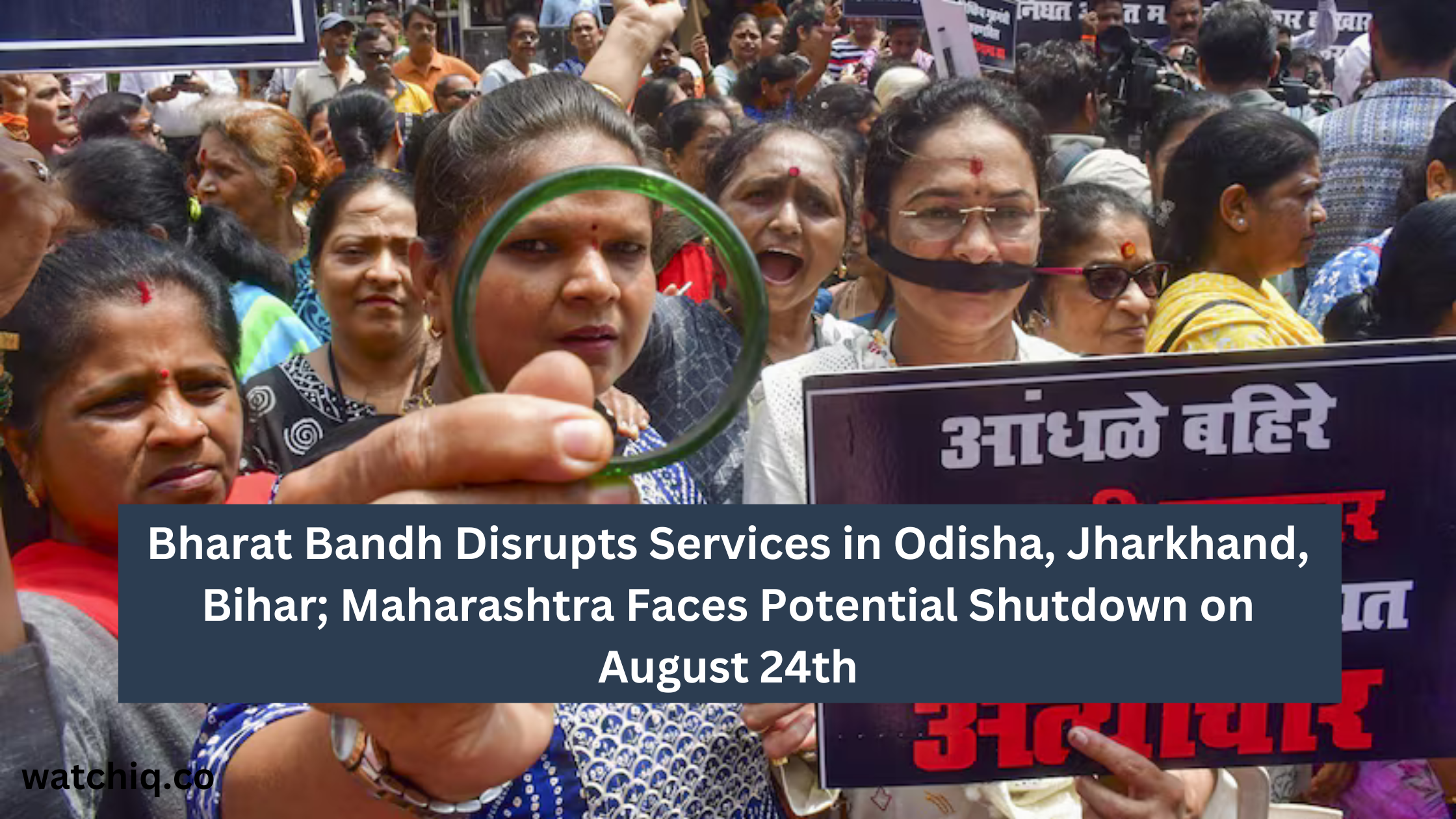On Wednesday, the Bharat Bandh called by the National Confederation of Dalit and Adivasi Organizations (NACDAOR) led to significant disruptions in railway and road services across various states, including Odisha, Jharkhand, Bihar, and parts of other regions. The bandh, which aimed to address issues affecting marginalized communities, saw widespread participation, causing major transportation blockages. In some areas, the situation escalated, forcing the police to resort to lathi charges to control the crowd.
Protests and Police Action
The Bharat Bandh witnessed large-scale protests, with demonstrators taking to the streets in significant numbers. The disruptions to public services were most severe in Odisha, Jharkhand, and Bihar, where both railway and road transport came to a near standstill. The blockade of key transport routes caused inconvenience to thousands of commuters and disrupted daily life in these states.
In certain locations, the situation became tense, leading to clashes between protestors and the police. Law enforcement agencies had to intervene, using lathi charges to disperse the crowds and restore order. Despite these measures, the protests highlighted the deep-seated frustrations of Dalit and Adivasi communities, who have been demanding greater attention to their issues.
Maharashtra Braces for Potential Shutdown on August 24th
Amidst the nationwide protests, there are growing concerns that Maharashtra might witness a state-wide bandh on August 24th. The call for this bandh has been issued by the opposition alliance Maha Vikas Aghadi (MVA), in response to a shocking incident in the state.
Background of the Incident
The catalyst for the Maharashtra bandh is the alleged sexual assault of two young girls in a school located in Badlapur, Thane district. The incident has sparked outrage across the state, with opposition parties criticizing the ruling BJP-led government for its failure to ensure the safety of women and children.
In a recent meeting, the MVA, which includes the Congress, Shiv Sena (Uddhav Balasaheb Thackeray faction), and the Nationalist Congress Party (Sharad Pawar faction), decided to call for a statewide bandh on August 24th. The opposition leaders are demanding justice for the victims and stringent action against the perpetrators.
Political Reactions and Planned Protests
Vijay Wadettiwar, the Leader of the Opposition in the Maharashtra Assembly, announced that all constituent parties of the MVA would participate in the bandh. He emphasized that the bandh is not just a protest against the heinous crime in Badlapur but also a condemnation of the ruling government’s failure to protect women and its perceived incompetence across various fronts.
In the lead-up to the bandh, the Mumbai unit of the Congress, led by President Varsha Gaikwad, organized a protest outside the state secretariat, Mantralaya. The demonstrators, holding placards, raised slogans against the government, criticizing the delayed filing of the First Information Report (FIR) in the Badlapur case. The protestors were eventually stopped by the police from entering the Mantralaya premises.
Government’s Response and Public Sentiment
The ruling Mahayuti coalition government has come under intense scrutiny following the Badlapur incident. Critics have pointed to the rising crime against women in the state, arguing that the government’s inaction has emboldened perpetrators. The arrest of a school assistant in connection with the sexual assault case on August 17th has done little to quell the public outcry, with many demanding more robust measures to ensure safety and justice.
As Maharashtra gears up for the potential bandh on August 24th, the state remains on high alert. The MVA’s call for action has gained considerable support, with citizens and various social organizations planning to join the protest. The bandh is expected to cause widespread disruptions across the state, particularly in major cities like Mumbai, Pune, and Nagpur.
